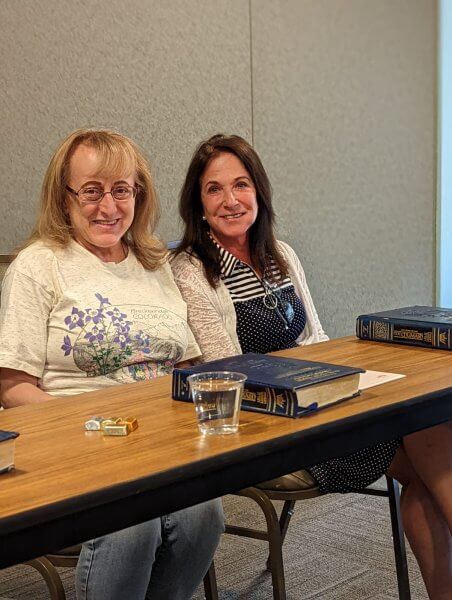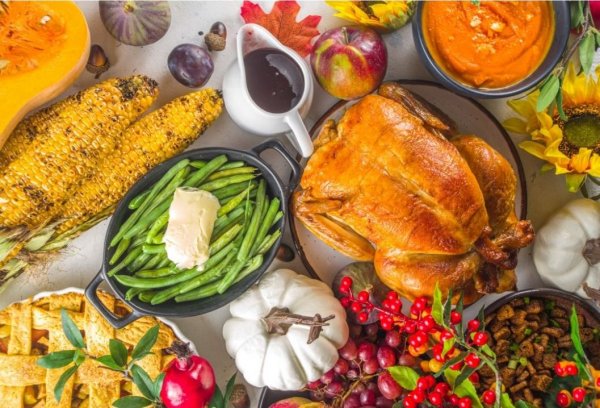VOLUME 68 NUMBER 3 November 7, 2014 CHESHVAN 14, 5775
This edition of Sparks of Torah is dedicated in honor a double Mazel Tov to Rabbi Dovid and Sara Gittie Nussbaum, on the engagement of their son Nachum and on the birth of a grandson to their daughter Chaya Rechel.
Under the Weather
I have to admit, I actually wrote the following thoughts on this week’s parsha a few years ago. When I went back and re-read it, it feels like I should be writing it now. Same time of year. Same head cold. Please send tissues. Likewise we read the parsha every year, and I never fail to be impressed anew about our forefather Avraham.
It is now November. The sniffles, soar throat and other cold symptoms usher in the approaching winter. Seems like everyone I know is sick.
I’ve had a pesky little cold myself for the last two weeks. Runny nose, stuffy head, no energy. Don’t feel like doing much of anything.
Reading this week’s parsha only made me feel worse.
The parsha begins three days after Avraham had his bris mila. He is sitting at the entrance to his tent, on a hot desert afternoon, in the midst of a prophetic communion with G-d. In the distance, he sees three wandering Arabs passing on their way.
If I would have been in his sandals, I would have stayed flat on my back and continued kvetching. (Not that Avraham was kvetching, but that’s what I would have been doing.) Avraham decides to get up and go catch the wandering Arabs so he can offer to feed and care for them. A bunch of strangers of no particular significance. And he didn’t just hobble over to them. The verse says he ran over to them and implored them to stop and let him feed them.
When they agreed, he hurried over to his wife Sarah and told her to bake for the guests, and he told her to hurry. Then he ran to his flock and picked out three calves for them, so that each one could have the best part of the animal—the tongue (gevaldik). He took the animals and he gave them to his son Yishmael to prepare, and the boy must have been so swept away with the sense of urgency that was rolling off his father in waves that he hurried to get the animals ready to eat. When it was all ready, Avraham personally served them a several course meal and stood over them while they ate.
All this from a wealthy, ninety-nine year old man recovering from circumcision. I don’t think on my best day, in the prime of my youth, in perfect health, I would ever have moved that fast or gone to such great lengths on behalf of someone’s else’s supper. Not to mention the supper of a total stranger. Not to mention that Avraham begged to be able to feed the strangers in the first place. And not to mention that he asked the Almighty, the King and Creator of the Universe, to wait while he did it!
With this incident we finally understand why Avraham is known as the ultimate paradigm of chessed, devoted generosity to others. His dedication to giving to others, compounded by the alacrity of his follow through, multiplied by the enormity of the obstacles he overcame to do a tova for someone else, was literally historic.
As I curl up on the couch with a blanket in hopes that my pesky cold will go away sometime this week and I read about our Forefather Avraham, I am amazed. Our Sages instruct us to ask ourselves, “When will my deeds reach the level of my forefathers?” We should strive to reach their almost incomprehensible level of greatness. And although we may never actually achieve it, we’ll end up doing a lot more for our fellow man, a lot more often, a lot more quickly and with a lot more initiative than if we just lay around and kvetch.
PURELY FOR THE SAKE OF
One of the most riveting episodes in our rich legacy is that of Akeidas Yitzchak, the binding of Isaac. Hashem commanded Avraham to sacrifice his son Yitzchak after he was told that his family line and heritage would pass through that very son. The ensuing challenge that confronted Avraham is beyond our comprehension. It was the ultimate test which propelled Avraham to be as great as he was. We reap the benefits of his ordeal when we beseech Hashem on Rosh Hashanah and Yom Kippur to forgive us for our sins and be merciful as He was then.
Avraham was accompanied by Yishmael, his son from Hagar his maidservant, and Eliezer, his faithful servant. When they reached the area near where he was to erect the altar upon which to sacrifice Yitzchak, he told Yishmael and Eliezer to remain behind until he returned. The language employed by Avraham is noteworthy. They were to stay with the donkey upon which they had ridden. The Talmud understands this to allude to the fact that they were comparable to the donkey in that they were both not considered his children. Obviously, Eliezer was not his son, but even Yishmael was not to be deemed his son. Although Avraham married Hagar, nonetheless her status was one of a servant rather than a wife comparable to Sarah; therefore her children were not viewed as Avraham’s children. This applied to others as well that if one fathers a child from a maidservant, that child is not regarded as true lineage of the father. The question that is posed is why is this particular halacha stated here in the middle of this seminal event?
Beis HaLevi underscores the importance of this that when Avraham was given this trial, it was with the understanding that he would essentially be bereft of a continuation of his lineage since Yitzchak would be dead. This was the focus of the challenge that confronted Avraham. There was the potential for Avraham to reason that although Yitzchak was his primary son, Yishmael, although born from a maidservant, might be looked upon as a son. Therefore, the pain and agony that he would suffer upon the demise of Yitzchak would be somewhat mitigated. As a result, the ordeal of the Akeidah would also be somewhat lessened and therefore the challenge would be, of course, also minimized. The entire objective of the test would not be realized!
Therefore, in order to avoid this potential pitfall, Avraham emphasized before he left with Yitzchak that Yishmael was not his heir even if Yitzchak would meet his end, sacrificed on the altar as an offering to Hashem.
We are left awe-struck with the presence of mind that Avraham mustered even in this seemingly dark hour of his life when his entire life’s dream and vision was about to be destroyed. This truly demonstrates the focus that Avraham attained when he was poised to perform this extremely difficult mission, displaying his unwavering devotion and dedication to Hashem.
The upshot of this is our need to focus on what we must do and not be distracted by the rhetoric which deters us from our goals and ideals. Self-sacrifice does not necessarily mean surrendering one’s life to Hashem. It is includes mustering the self-motivation required to navigate our many trials and tribulations while we are alive.
A BYTE FOR SHABBOS
When our foremother Sarah heard the good news that she would bear a child and then laughed, the angels immediately left. Since it was the absolute truth that she would have a child and Sarah was unwilling to recognize its veracity, they were unable to contend with her attitude and immediately went on their way.
CHOFETZ CHAIM
GOOD SHABBOS



